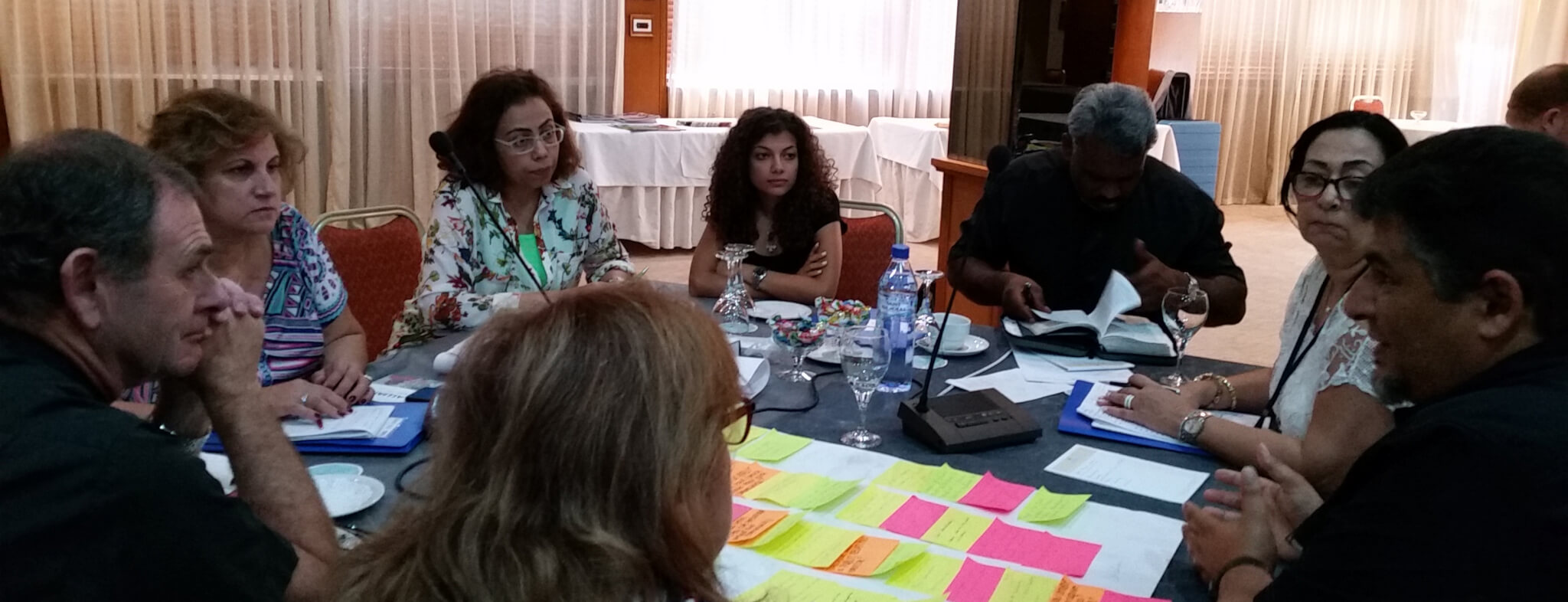Representatives from Anglican churches and agencies across the Middle East gathered in Cyprus last month, for the first Anglican Alliance consultation in the region.
The four day meeting, which took place from 19-22 September 2016, saw delegates sharing their top priorities for development, relief and advocacy, including the ongoing refugee and migrant crisis, increasing instability and violence, and the lack of economic opportunities, particularly for young people.
Georgia Katsantonis, Provincial Secretary for Jerusalem and the Middle East, said, “It was truly an inspirational consultation. Everybody I spoke to felt so, and we all look forward to a successful follow-up.”
She was also struck “to see everyone actively and animatedly engaging on issues that affect each diocese in different ways.”
After the consultation, representatives agreed to hold regular online meetings to continue the conversation and enable shared learning across the region. An Anglican Alliance regional facilitator will also be appointed to help the network and provide a coordination point for their important work.
Top priorities identified by the group were:
- Economic Empowerment
- Migrants and Refugees
- Interreligious Living and Peace-Building
- Human Trafficking and Modern Day Slavery
Economic Empowerment
Economic empowerment was seen unanimously as the top issue affecting the region, as the lack of economic opportunities was identified as driving further problems such as human trafficking, interreligious violence and migration.
Across the region Anglican churches have been working to address barriers to economic empowerment and provide opportunities for the most vulnerable.
The group heard from representatives in Jordan who had been involved in education and skills training to enable deaf students to enter the workforce; from Cyprus on the church’s work in helping migrant workers access service industry training; and from Egypt who, through EpiscoCare, had been providing microloans and vocational training, and supporting girl’s education to enable them to become financially independent. Stories from the Mothers’ Union also spoke of the power of savings groups to drive economic empowerment, building community resilience as well as individual freedom.
Conversations identified the unique role of the Church in connecting people and organisations to work together, whilst making sure the voices of the marginalised were heard.
Migrants and Refugees
The Church’s work in addressing the migrant and refugee crisis was also recognised, as the movement of people across the region continues. Local ministries to the refugees and migrants were seen as particularly important, as well as the need for outreach to the host communities affected.
Interreligious Living and Peace-Building
Life in the Middle East is deeply affected by interreligious tension. Participants at the consultation spoke on the way in which this tension underlies other key issues such as peace building, refugees and migrants, and human trafficking, as well as economic exclusion and difficulties for young people. Representatives shared their ongoing inter-faith initiatives, and jointly recognised the need for visionary leaders and better education to build understanding and challenge misconceptions.
Human Trafficking and Modern-Day Slavery
The need for further teaching in the church and communication across dioceses was identified to help tackle the breadth and depth of human trafficking in the region. Participants highlighted the opportunity for the Church to share hope and redemption in addressing this issue.
In addition to sharing their key concerns and discussing ways forward in tackling the priority areas for the region, the group heard more about the work of the Church across the Anglican Communion in development, relief and advocacy, and the ways in which they could both contribute to and learn from other’s initiatives.
Groups discussed climate justice and food security, which is a development priority for all other regions of the Anglican Communion. Creationtide resources were shared and participants discussed the ways they could help disciple others and influence the way they relate to the environment.
And other useful tools were shared, such as the Pastors & Disasters toolkit, an introduction to Umoja, a conversation on disabilities and development, and the Anglican Alliance’s mapping of ‘Football for Development and Peace’.

